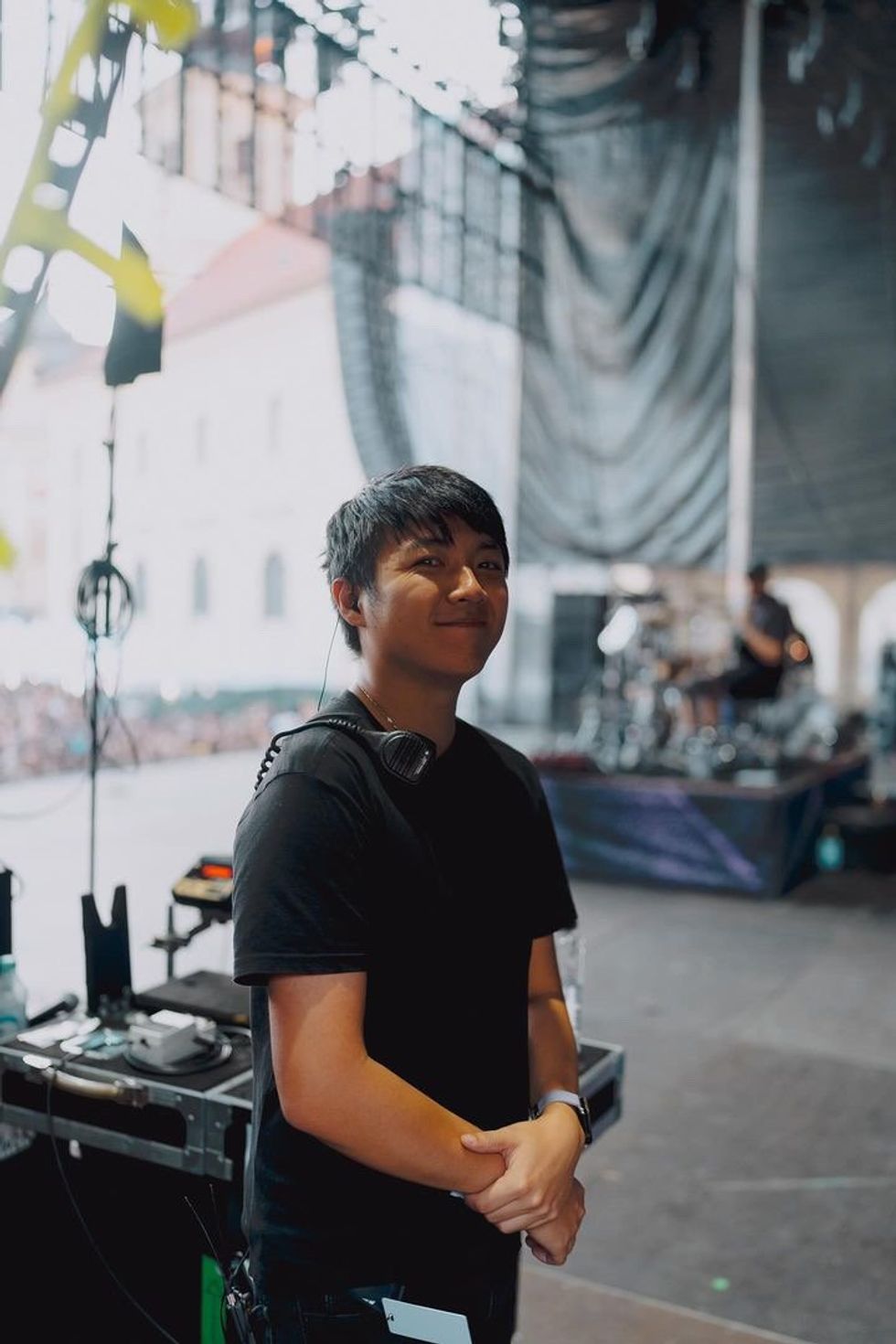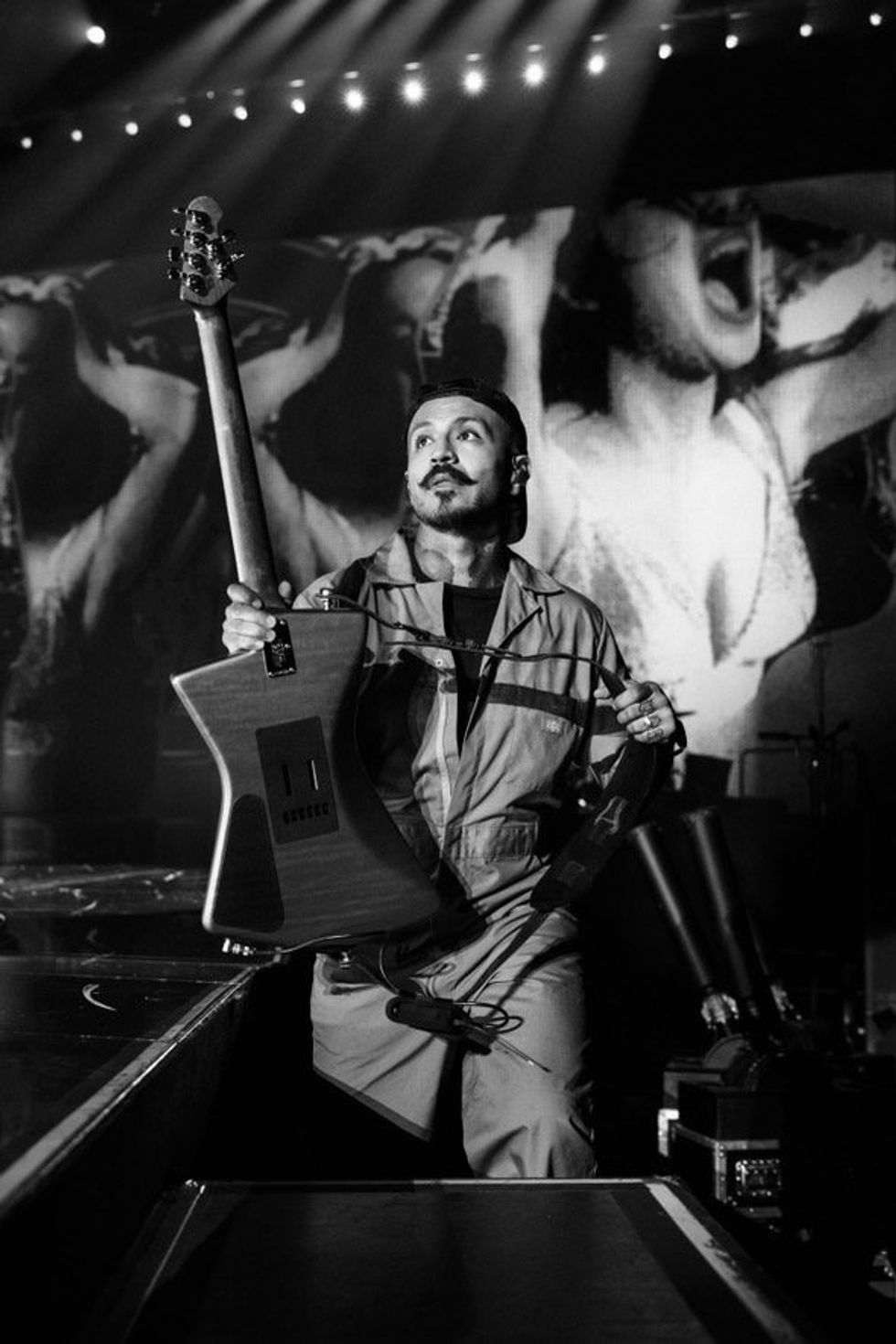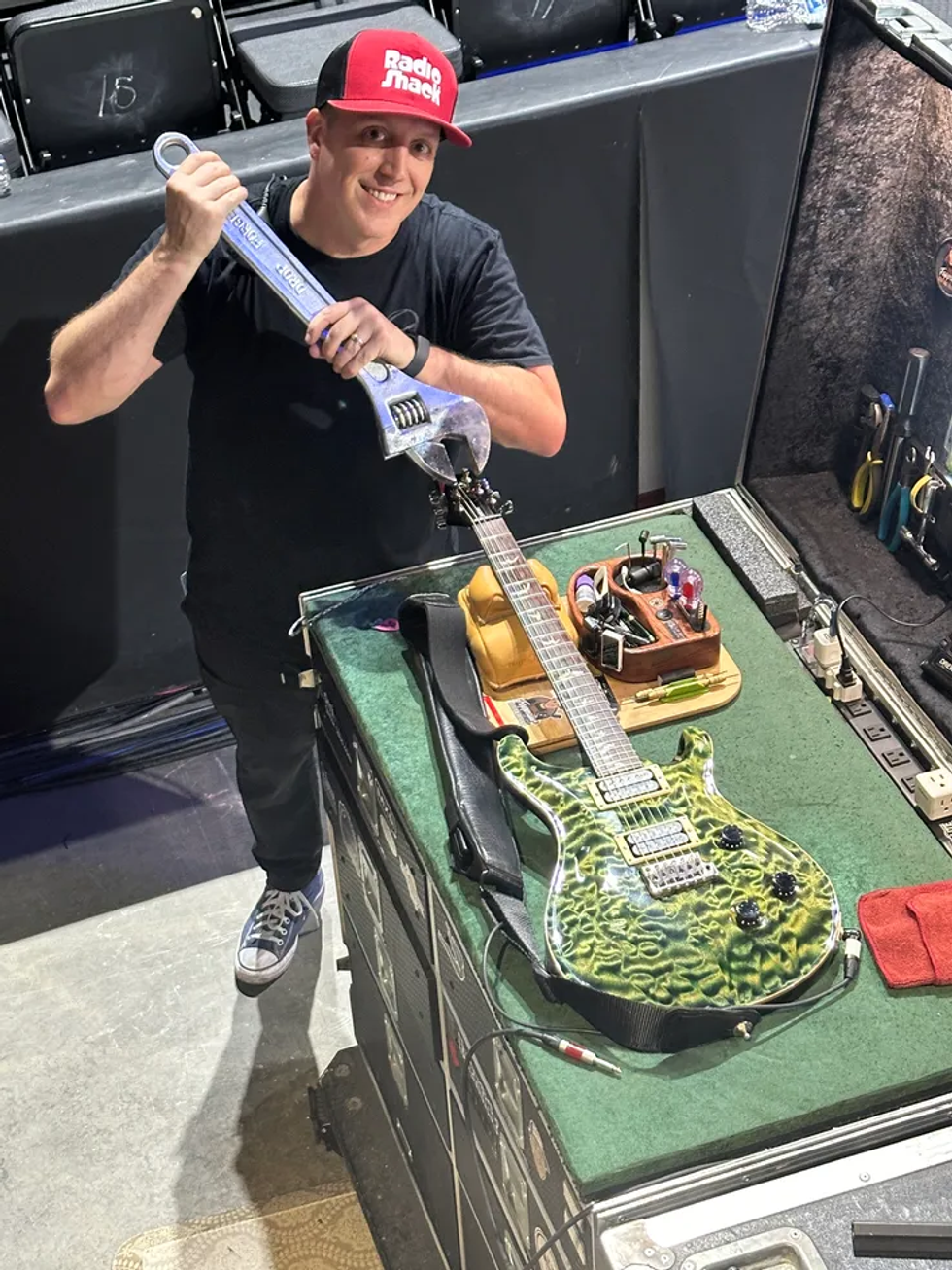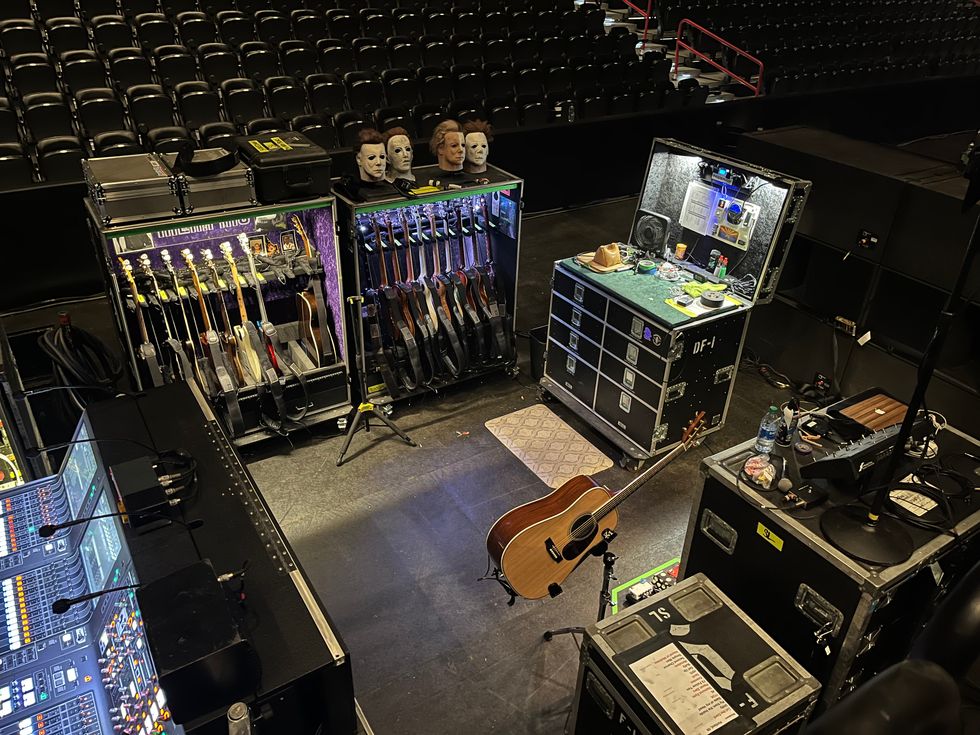It’s a chilly night in late November, and the line for ticket holders has snaked all the way around the block. “Wow, that’s what I call dedication!” yells a passerby, marveling at the size of the crowd. Strict COVID protocols are causing delays at the doors to New York City’s sold-out Hammerstein Ballroom, but no one here seems to mind. After all, it’s been more than two years since the four prog-metal horsemen of Mastodon last descended on Gotham. What’s another half-hour in the cold, especially when the payoff is a sweat-soaked live set packed with brand new songs and some of the band’s most feral old-school headbangers?
For reasons that transcend the hassles of a pandemic lockdown, Hushed and Grim, Mastodon’s eighth and most wide-ranging and ambitious album, also went through a prolonged incubation period. It started, like most of the band’s projects, in the wake of tragedy, with the passing in late 2018 of their longtime manager and family friend Nick John, following a battle with pancreatic cancer. They responded with “Fallen Torches,” a song they tracked with Neurosis frontman Scott Kelly, just a few months after John’s death.
Mastodon - Pushing the Tides [Official Music Video]
“Fallen Torches” wound up on the 2020 compilation Medium Rarities, but it gave Mastodon the spark to begin thinking about a bold, concept-driven statement album dedicated to John’s memory. And Hushed and Grim, despite its title, is anything but quiet. It’s the mammoth, multi-layered sound of a band that’s working through its collective grief while feeding a ravenous hunger for experimentation and new directions. Clocking in at nearly 90 minutes, the double slab ambushes you with genre twists and turns—from the Crimson-esque psych flavors of “Teardrinker” to the amped-up hardcore groove of “Savage Lands”—even as it rewards you with special guests (Soundgarden’s Kim Thayil on “Had It All” and Southern rock rebel Marcus King on “The Beast”) and sonic gems galore.
When asked why every Mastodon album seems to come across as a deep and intensely personal experience, guitarist Bill Kelliher doesn’t flinch. “That’s the connection we have with our fans,” he says. “They kind of expect it by now from us—that emotional bond, that realism. I mean, everybody goes through it. Everybody has lost someone, or knows someone who had cancer, or who died in a car accident or some unspeakable tragedy. We just spill our guts about it. It’s almost medicinal.”
“I’ve had those Marshalls for a while. I bought them from Ruyter [Suys] from Nashville Pussy, who bought them when they were on tour with AC/DC, so they were actually Angus’ [Young] amps!” —Brent Hinds
In the grip of a creative torrent that yielded 25 demos, the band made a savvy move by recruiting producer David Bottrill, well-known for his work with Peter Gabriel and King Crimson, for tracking sessions at their own studio, West End Sound in Atlanta. “On one level, I wish we had pulled David in right away,” says lead guitarist Brent Hinds, “so when we were about to do the demos, that would have been the album, you know? But he is top-notch, no question. He’s a really cool human being, and he’s just great at what he does.”
Botrill quickly honed in on Mastodon’s enduring strengths: the vocal powers of drummer Brann Dailor and bassist Troy Sanders, and, in particular, the yin-and-yang symbiosis that fuels Hinds and Kelliher as guitar players. Where Kelliher is the more cerebral and deliberate of the two, Hinds plays like he’s about to burst into flames at any moment—and yet they gamely collaborate on riffs that writhe and dip with a deep-seated sense of melody, harmony, swift-picked precision, and endless groove. (The oft-quoted analogy is the legendary twin-guitar attack of Thin Lizzy’s Brian Robertson and Scott Gorham, and the comparison fits.)
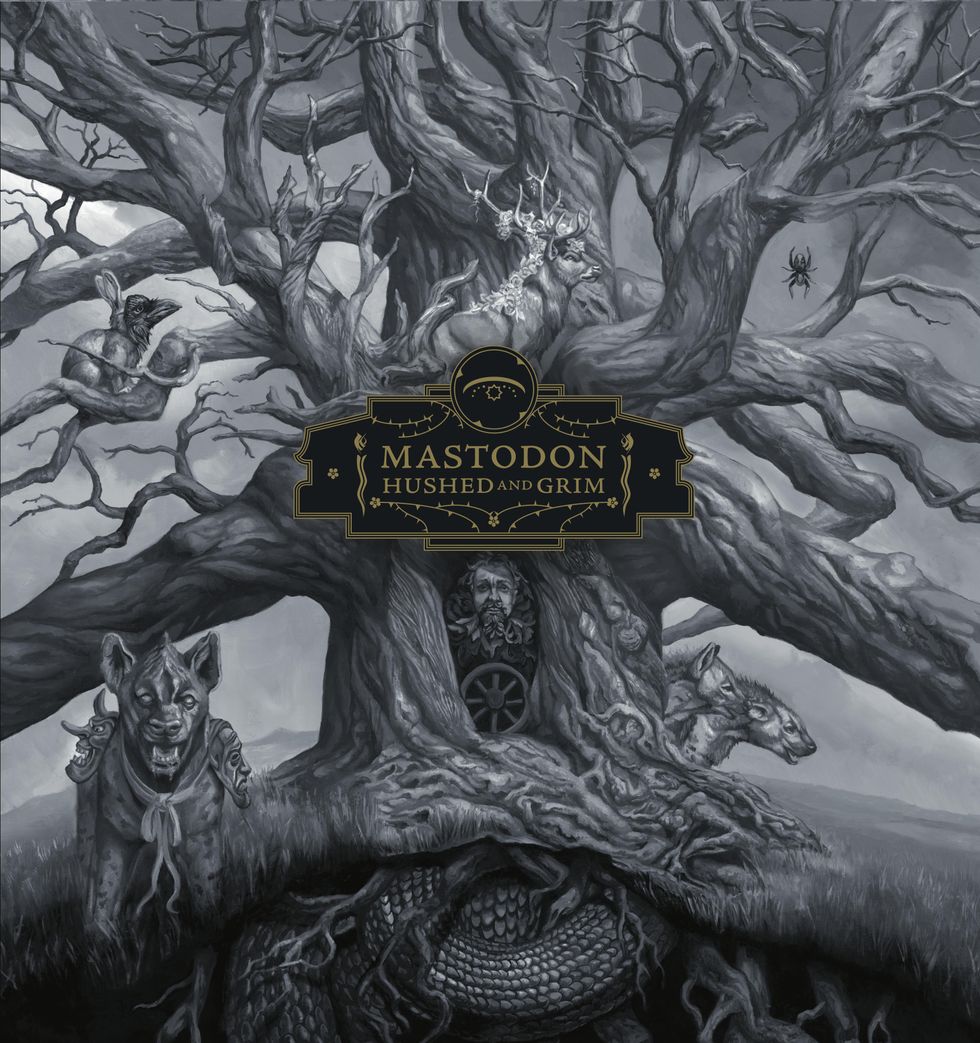
TIDBIT: Mastodon’s eighth studio album, Hushed and Grim, is a tribute to their longtime manager and friend, Nick John, who passed away after a battle with pancreatic cancer. It was produced by David Bottrill at Mastodon’s own West End Sound in Atlanta.
With this in mind, Botrill encouraged both guitarists to push their sound further and explore more amp combinations and effects. “We really fine-combed through every single possibility of every song,” Kelliher explains. “I have this little floor pedal with four switches, and you can plug in four cabinets with one head and compare them very quickly. When David first showed up, we spent a day doing that, and he’s like, ‘Well, your Marshall [JCM 800] sounds great with the Friedman cabinet, and your Friedman [Butterslax] head sounds great with the Marshall cabinet.’ And then I had a Mojotone cabinet that I used with my [Friedman] BE Deluxe. So we had a nice big, thick sound for all the rhythm stuff.” (Kelliher has just collaborated with STL Tones to release a signature ToneHub Preset Pack—a plug-in suite that features all the setups he used for Hushed and Grim.)
He points to “Pain with an Anchor,” the molten leadoff cut from Hushed and Grim, as a prime instance of a new effect helping to guide his rhythm part, which he played on one of his signature ESP Sparrowhawks, a standby for most of the album. “In my head, I always heard more of a sitar-like sound,” Kelliher says, “so I bought an Electro-Harmonix Ravish [Sitar emulator]. It has a million settings, but luckily David had the patience to sit there with me and turn knobs while I played it. I wanted to keep it pretty clean, except for the very end of the song, which is this big, doomy chugga-chugga thing, so it sounds super heavy and percussive when that section comes in.”
Brent Hinds’ Gear
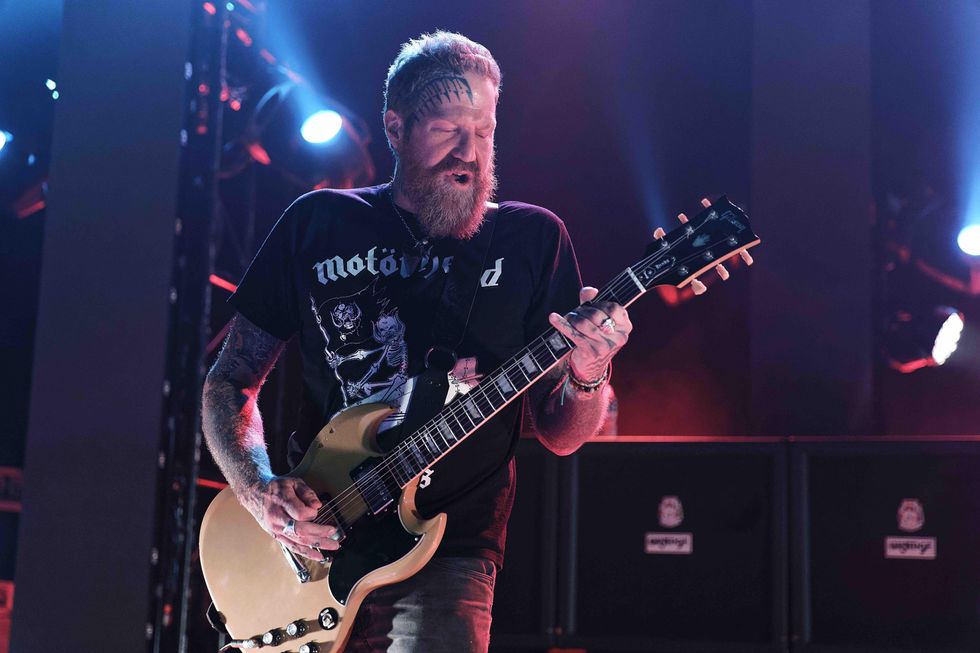
Brent Hinds riffs aplenty on one of his preferred Gibson SGs at Detroit’s Royal Oak Music Theatre in 2017. He opted for a vintage 1963 Gibson SG Junior on Mastodon’s new album, Hushed and Grim.
Photo by Ken Settle
Guitars
- Banker Custom Hammer Axe
- Banker Custom V
- Electrical Guitar Company Signature Custom V
- Epiphone Signature Flying V Custom
- 1963 Gibson SG Junior
- Gibson Custom Silverburst Flying V
- Gibson Les Paul Gold Top
Amps
- Orange Signature Terror
- Diezel VH4
- Marshall JMP Super Lead
- Fender Princeton Reverb (vintage)
- Marshall cabinets
Effects
- Dirty B Hinds Mastodrive
- Boss DD-6 Digital Delay
- Boss RE-20 Space Echo
- Ibanez TS808 Tube Screamer
- ISP Decimator
- Jim Dunlop 105Q bass wah (wide sweep)
- Line 6 DL4
- MXR Phase 90
- TC Electronic Flashback
- TC Electronic Corona Chorus
Strings and Picks
- D’Addario EXL145 Heavy (.012–054, .011–.052)
- Dunlop Yellow .73 mm Tortex
Hinds, although perhaps less enamored of exotic effects, nevertheless mixed it up with his choice of guitars, among them a vintage 1963 Gibson SG Junior, a custom Banker V, a Les Paul Goldtop, a Telecaster B-bender owned by Marcus King, and a Stratocaster owned by Banker’s Matt Hughes. (Hughes was also a source for a fleet of Fender ’57 amps that appear on the album.)
“I do play through my Mastodrive on ‘More Than I Could Chew,’” Hinds clarifies, citing the overdrive pedal, designed by his company Dirty B Hinds, that figures prominently on one of the heaviest-treading anthems on the album. “The landscape is really big on that song, with a lot of cool moving parts. And I’m pretty sure I was playing one of my JMPs mixed with the Diezel VH4. I’ve had those Marshalls for a while. I bought them from Ruyter [Suys] from Nashville Pussy, who bought them when they were on tour with AC/DC, so they were actually Angus [Young]’s amps! They’ve got a history, and they sound great.”
“Everybody has lost someone, or knows someone who had cancer, or who died in a car accident or some unspeakable tragedy. We just spill our guts about it. It’s almost medicinal.” —Bill Kelliher
All that heavy mojo invariably finds its way into the solos. Hinds dials in a remarkably buttery and bluesy tone, with just a hint of ZZ Top’s Billy Gibbons, toward the end of the doomy ballad “Skeleton of Splendor,” while his tasty Hendrixian vamp on “Sickle and Peace” gets a reverse delay treatment from Botrill that helps transport the song into a resplendently cosmic headspace. Further on, Marcus King brings an elastic, Carolina-fried slide to “The Beast,” and Kim Thayil turns back the clock for a wah-soaked euphoric wail on “Had It All.”
“That song is about loss,” Kelliher says, “and I figured Kim could relate, and would be the perfect guy to play an emotional solo.”
Of course, this wouldn’t be a Mastodon album without their reliance on D standard tuning (with some darker variations that include drop C and drop A), which naturally lends itself to the moody timbre of Hushed and Grim. For Kelliher, “Pushing the Tides” is the standout.
Bill Kelliher’s Gear
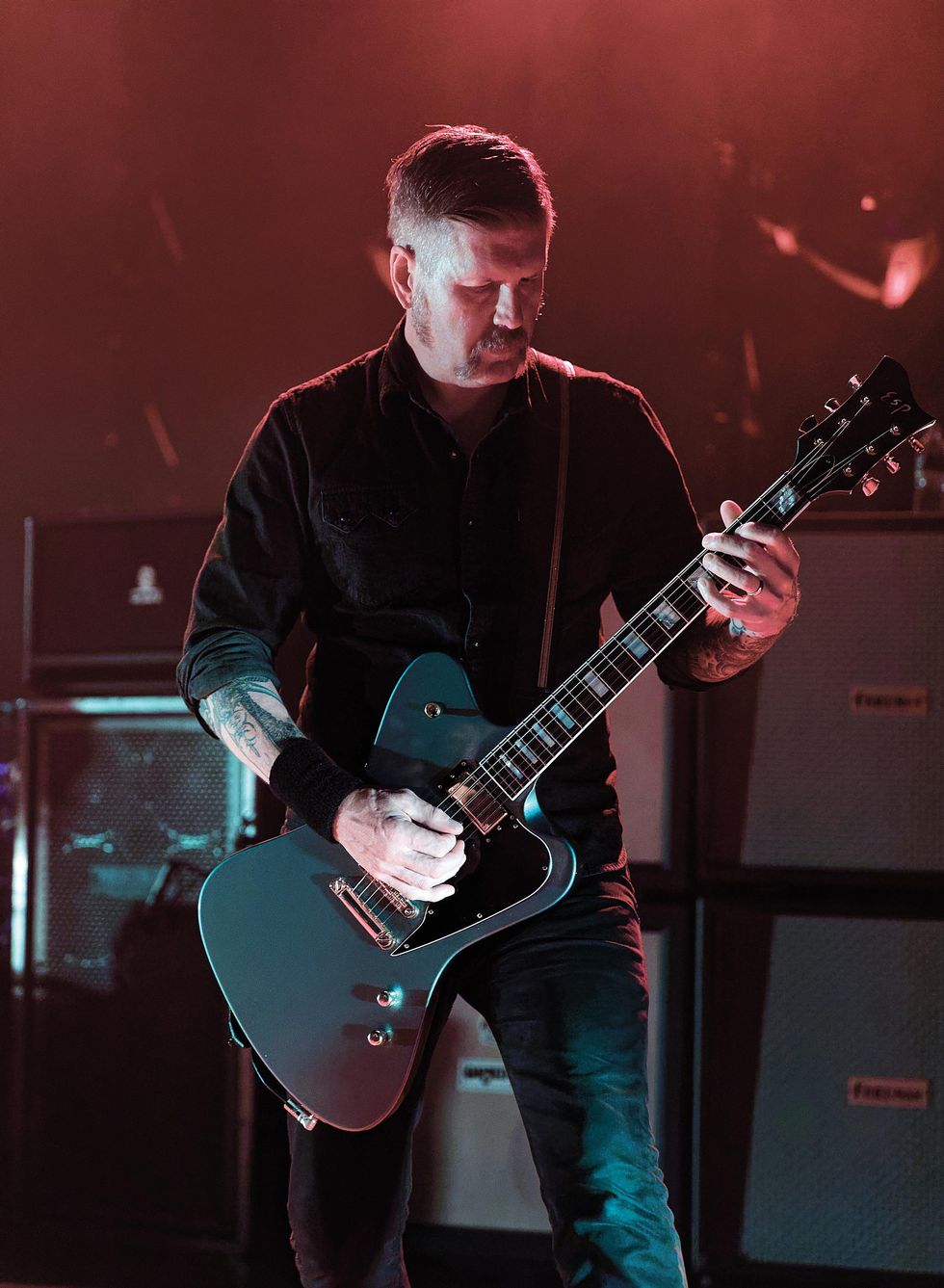
“I have this little floor pedal with four switches, and you can plug in four cabinets with one head and compare them very quickly,” says Bill Kelliher. He recently colloborated with STL Tones to release a signature plug-in suite that features all the setups from the new album.
Photo by Ken Settle
Guitars
- ESP Sparrowhawk Signatures
- ESP LTD Signatures
- ESP Eclipse (Silverburst double-cutaway)
- Banker Custom Excalibur
- Dunable Custom Gnarwhal
- First Act custom 9-string
- Dunable Custom Gnarwhal
- Gibson Signature “Halcyon” Les Paul
- Gibson Les Paul Custom
Strings
- D’Addario EXL140 (.010–.052)
Amps
- Marshall JCM800
- Friedman Signature Butterslax
- Friedman BE 100 Deluxe
- Fender Vibro-King (formerly owned by Duane Denison of Jesus Lizard)
- Silvertone 1464 Solid State 100
- Marshall and Friedman cabinets
Effects
- Line 6 Helix with HX Stomp
- Electro-Harmonix Ravish Sitar Emulator
“A song like ‘Roots Remain’ [from 2017’s Emperor of Sand] has that same feel,” he says. “I’m repeating myself a lot, but you know, look at the Ramones. They took the same three chords and played them in a different rhythm, and it’s a different song, and no one ever notices [laughs]. So there are certain notes that I know in my head that when I play them together, it gives me this sad feeling. When I’m doing a dissonant chord, or dissonant notes, sometimes it’s a feeling like your ship is sinking. And in my head, I have these categories of what I can see on the guitar. It’s like, this song needs fear, this one needs sadness, this one needs regret. I’ve gotten to where I can kind of conjure that up with my hands.”
It’s not a stretch to refer to Hushed and Grim as Mastodon’s version of Quadrophenia or Physical Graffiti, and that’s primarily because the band itself is expanding its sonic horizons more noticeably than on any other album they’ve done to date. When you’re open to embracing the energy, grief has a way of drawing out your most combustible and authentic mode of expression … but it’s not a crutch you can lean on for too long. At some point, catharsis and redemption must take hold.
“In my head, I have these categories of what I can see on the guitar. It’s like, this song needs fear, this one needs sadness, this one needs regret. I’ve gotten to where I can kind of conjure that up with my hands.” —Bill Kelliher
“When we lost Nick and then the lockdown happened. Everyone needed that time to deal with a lot of things, you know?” Hinds observes. “I think that was good for us. We’d been going at a thousand miles an hour for like 20 years, so everyone needed that time off to just chill a little bit. It was really nice to be able to sit around and just focus on some music for a change.”
With all those years in the trenches together, Mastodon are probably more focused and sure-footed than they’ve ever been as a band. That cohesiveness and confidence shine through now that they’re taking the stage again, and it’s lifting their fans right up along with them—for plenty more raucous trips ’round the sun, we expect. Better buckle up and hold on.
Mastodon - Live 2020 [Full Show]
In this recent performance for Adult Swim, Mastodon take all the loss and pain from the last few years and bring catharsis to the stage, with a neon glow and their elephant-sized, multi-layered sound.
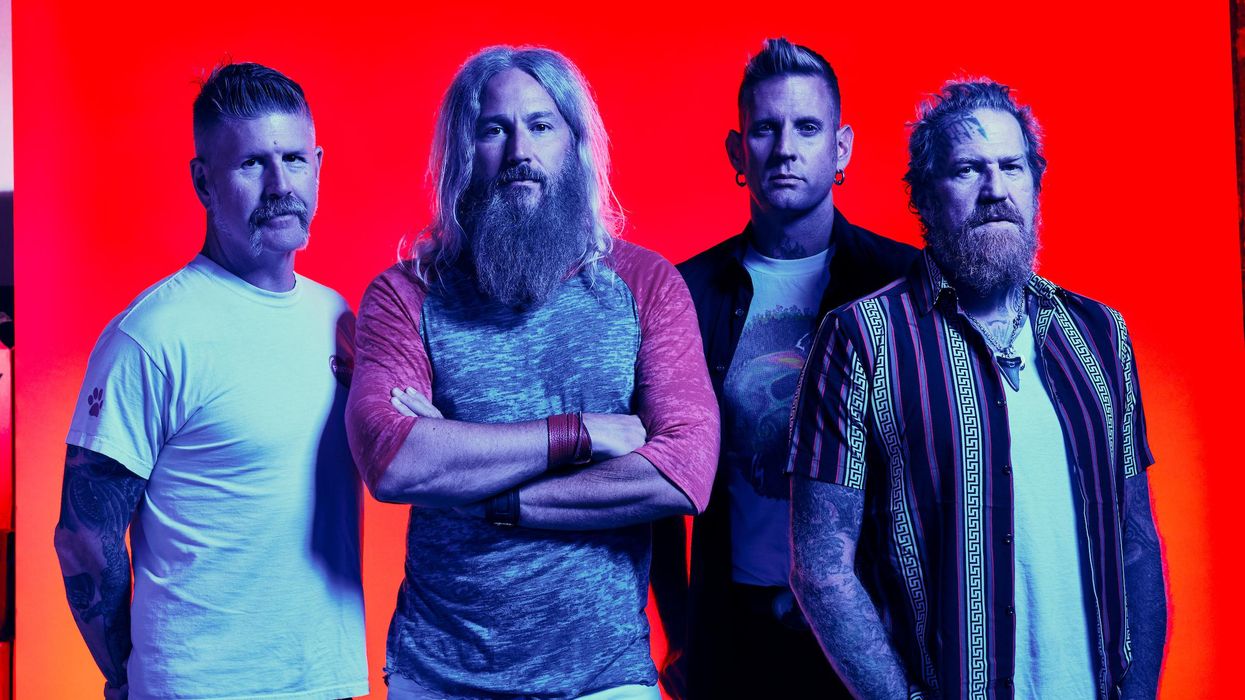




![Rig Rundown: AFI [2025]](https://www.premierguitar.com/media-library/youtube.jpg?id=62064741&width=1245&height=700&quality=70&coordinates=0%2C0%2C0%2C0)












 Shop Scott's Rig
Shop Scott's Rig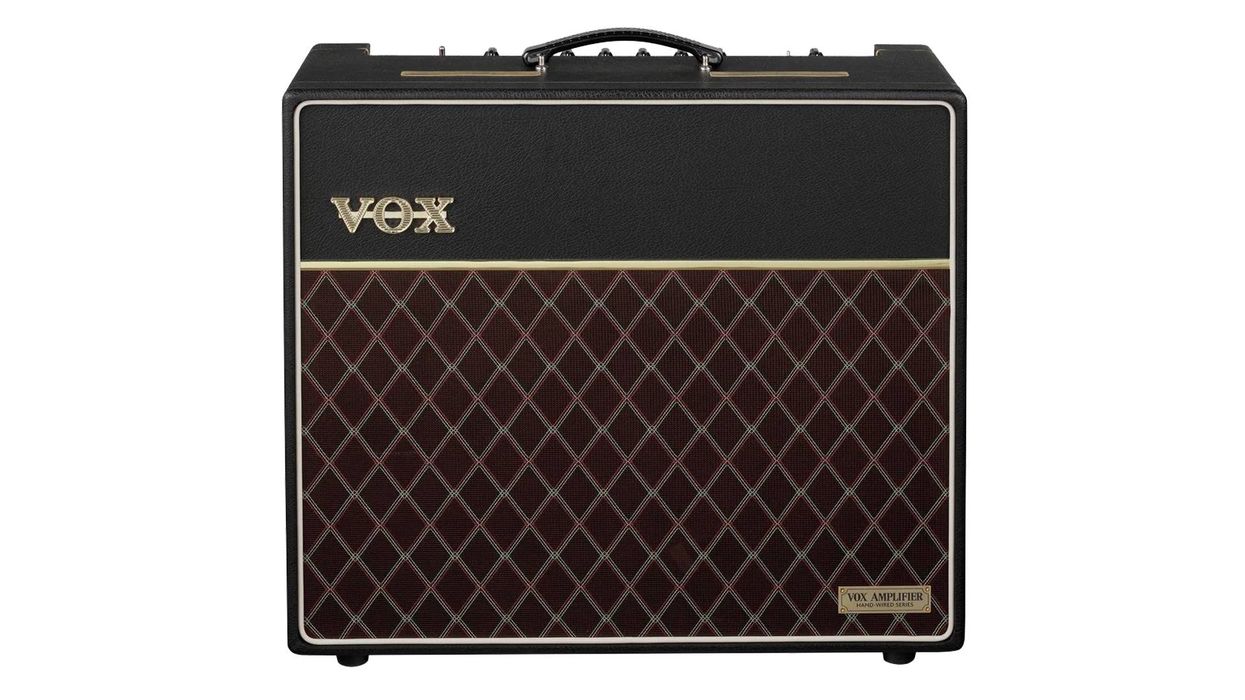
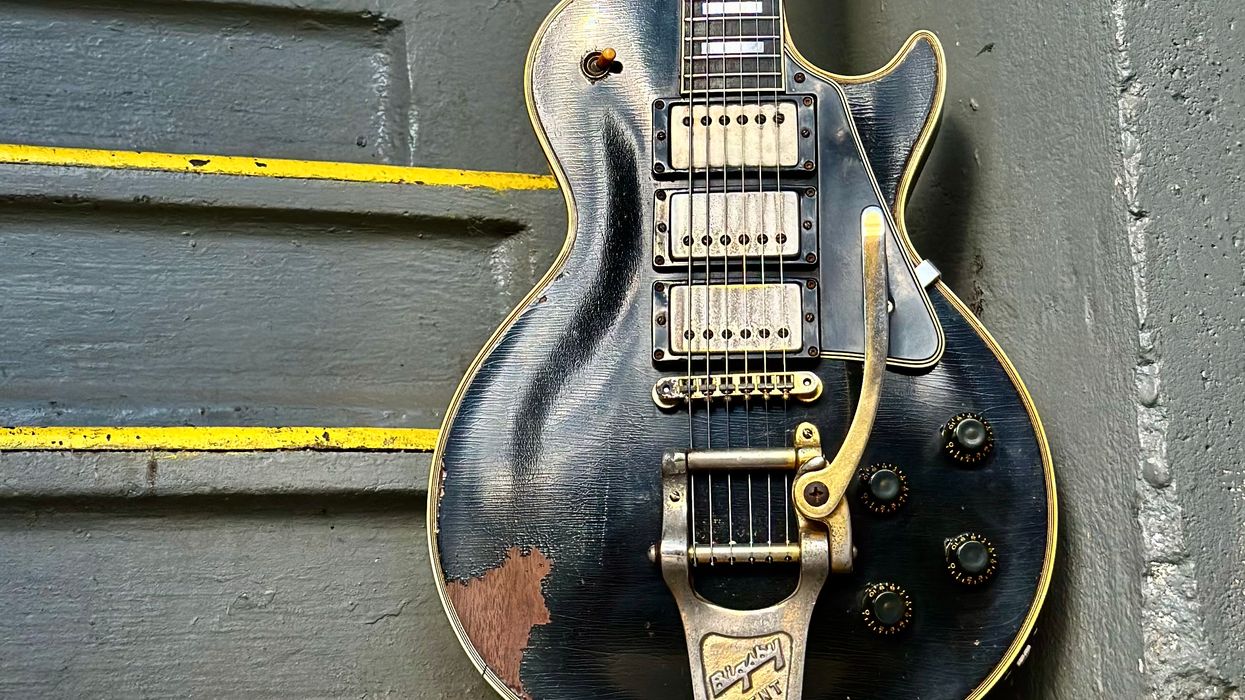
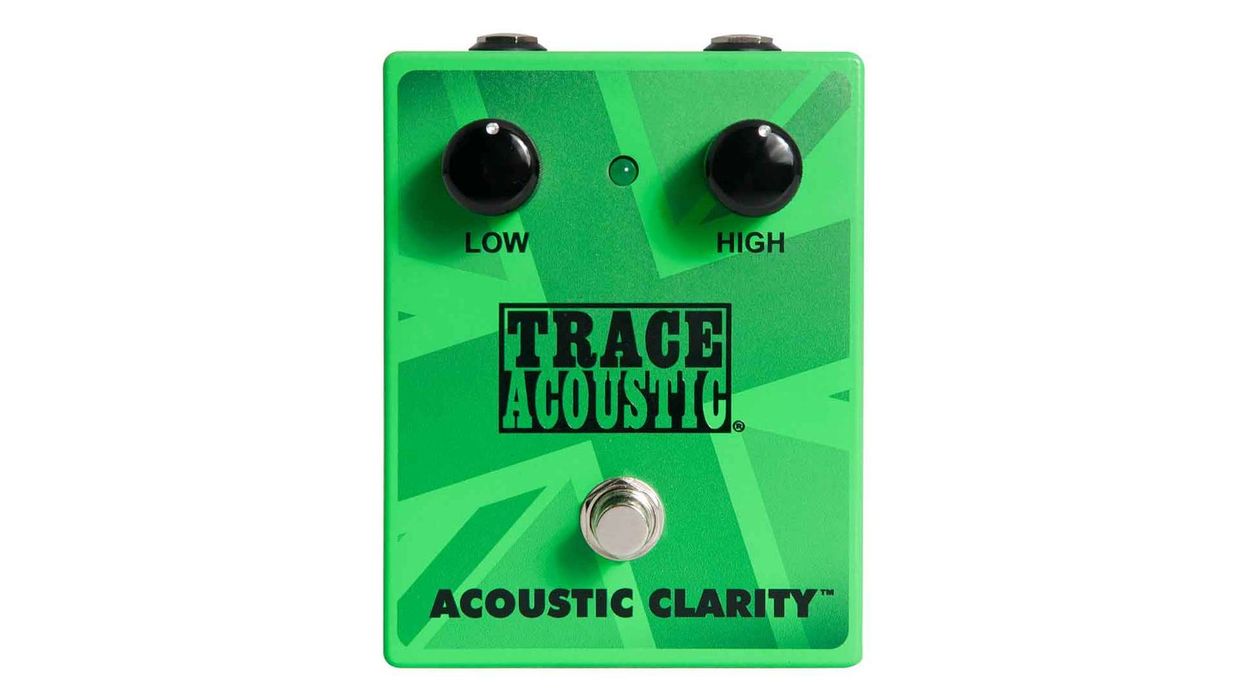











 Zach loves his Sovtek Mig 60 head, which he plays through a cab he built himself at a pipe-organ shop in Denver. Every glue joint is lined with thin leather for maximum air tightness, and it’s stocked with Celestion G12M Greenback speakers.
Zach loves his Sovtek Mig 60 head, which he plays through a cab he built himself at a pipe-organ shop in Denver. Every glue joint is lined with thin leather for maximum air tightness, and it’s stocked with Celestion G12M Greenback speakers.












![Devon Eisenbarger [Katy Perry] Rig Rundown](https://www.premierguitar.com/media-library/youtube.jpg?id=61774583&width=1245&height=700&quality=70&coordinates=0%2C0%2C0%2C0)
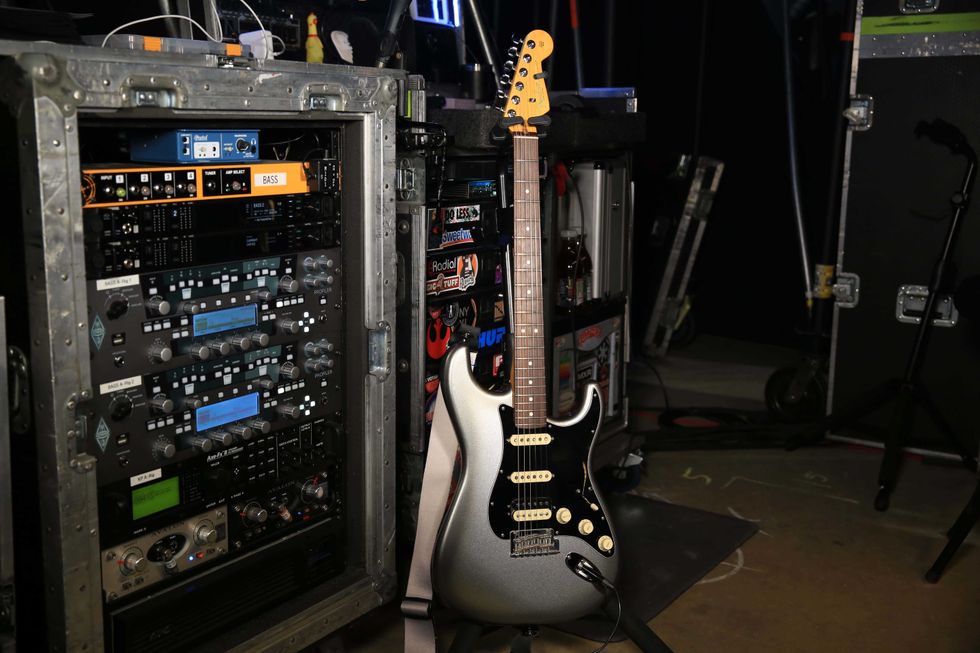
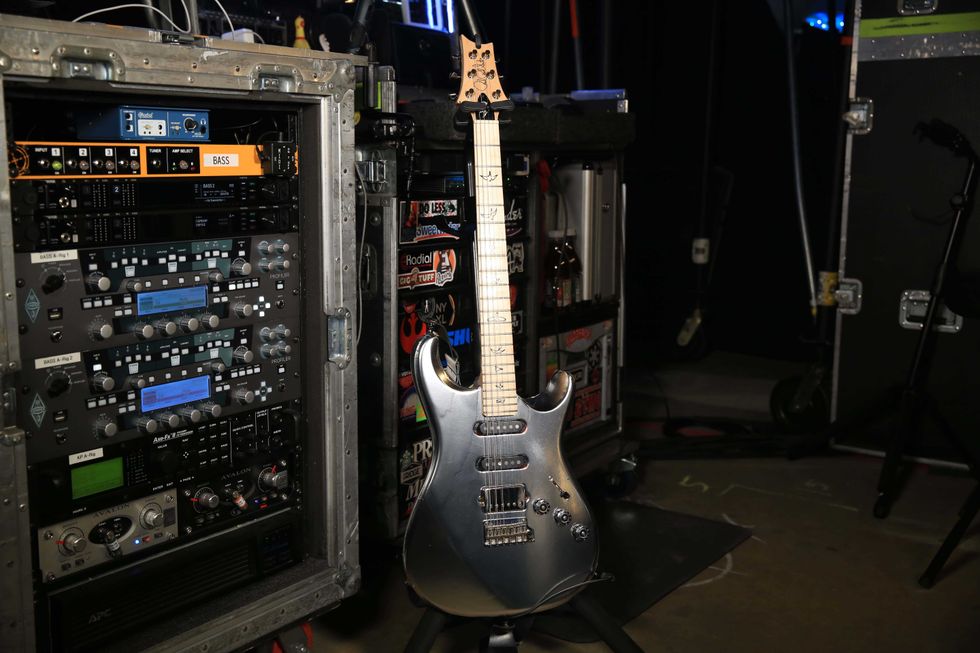
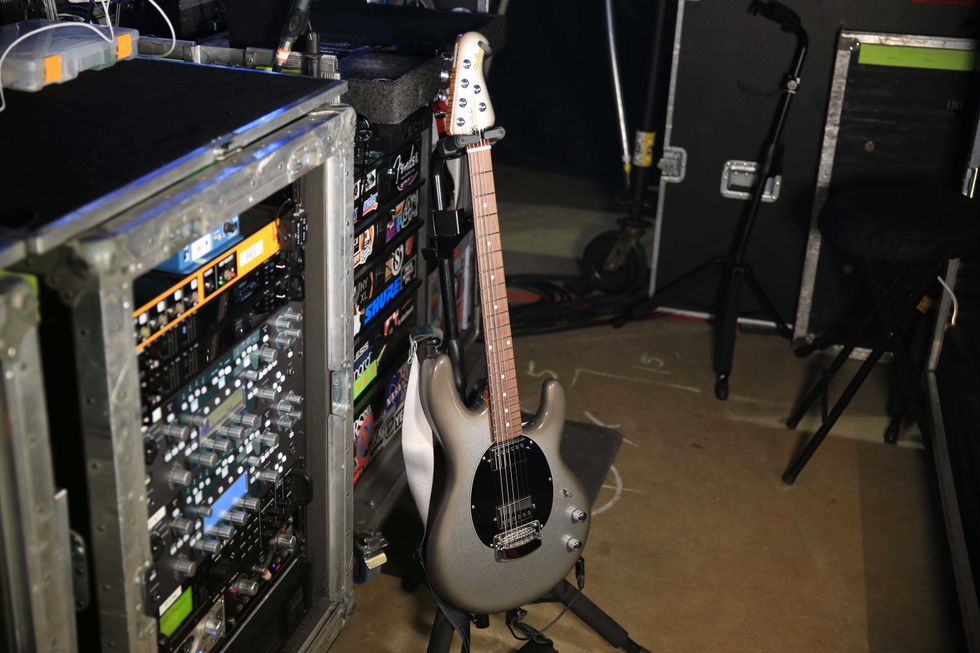
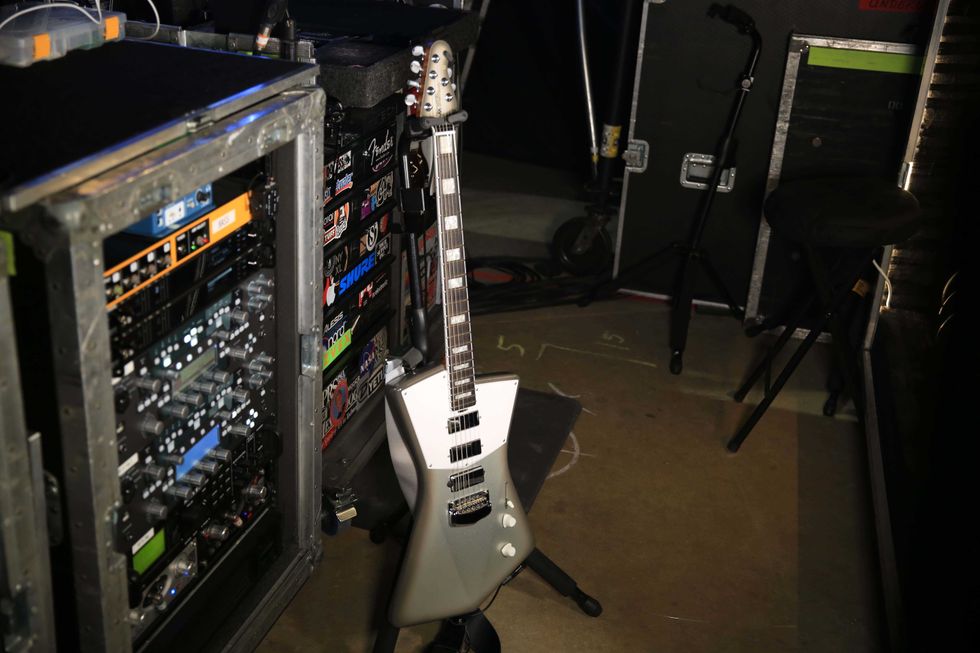
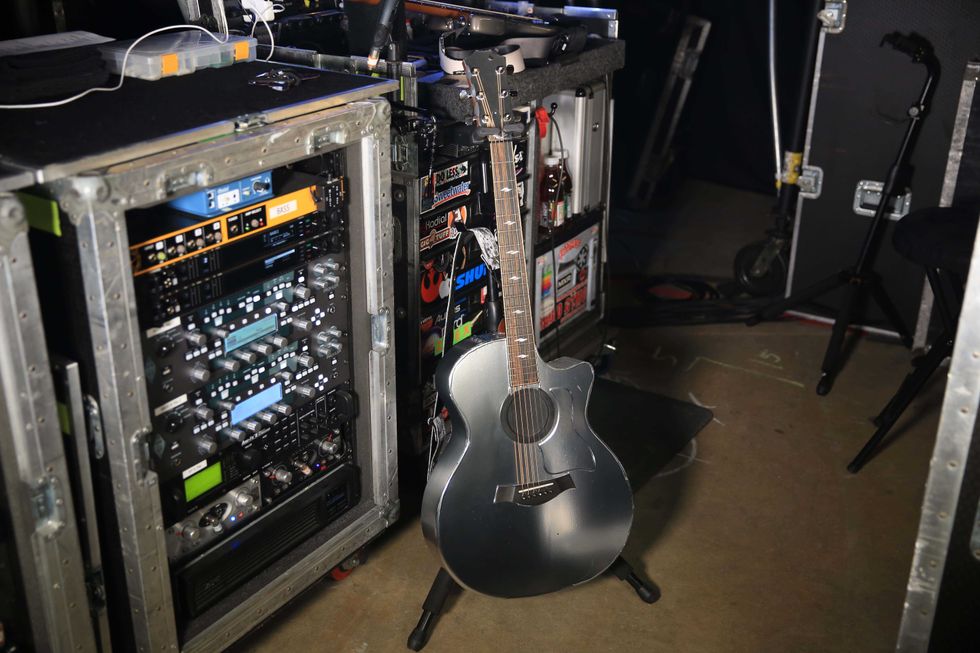
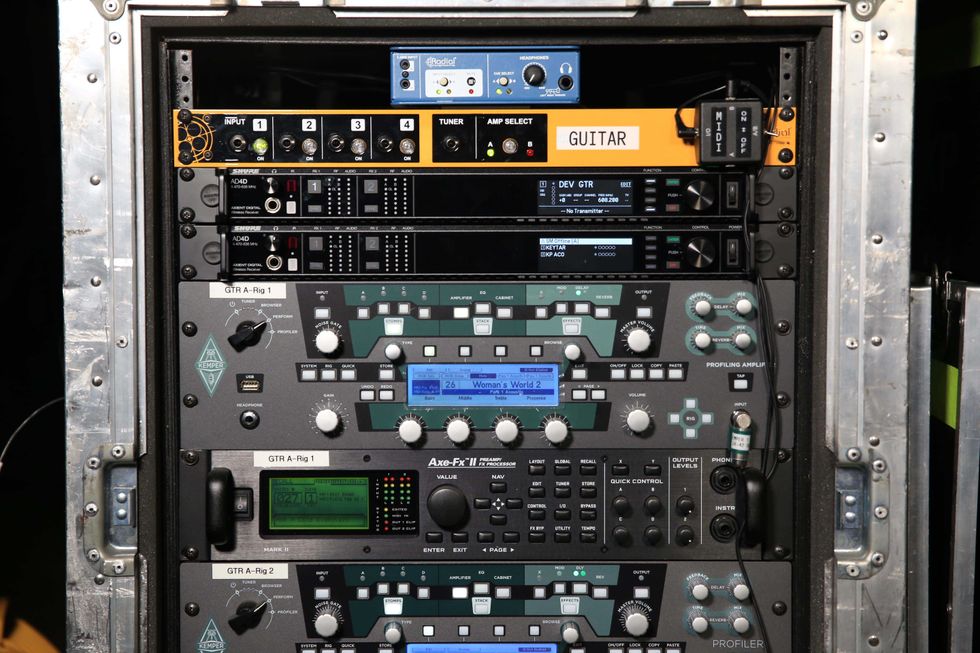


 Luis Munoz makes the catch.
Luis Munoz makes the catch.